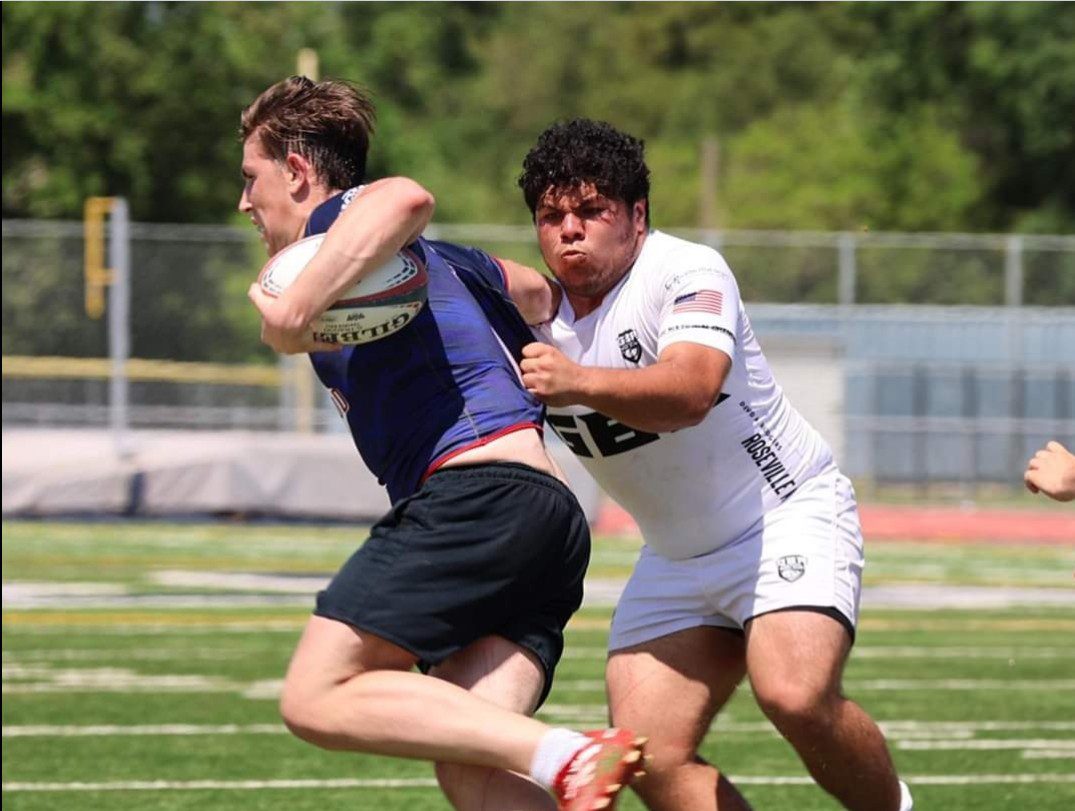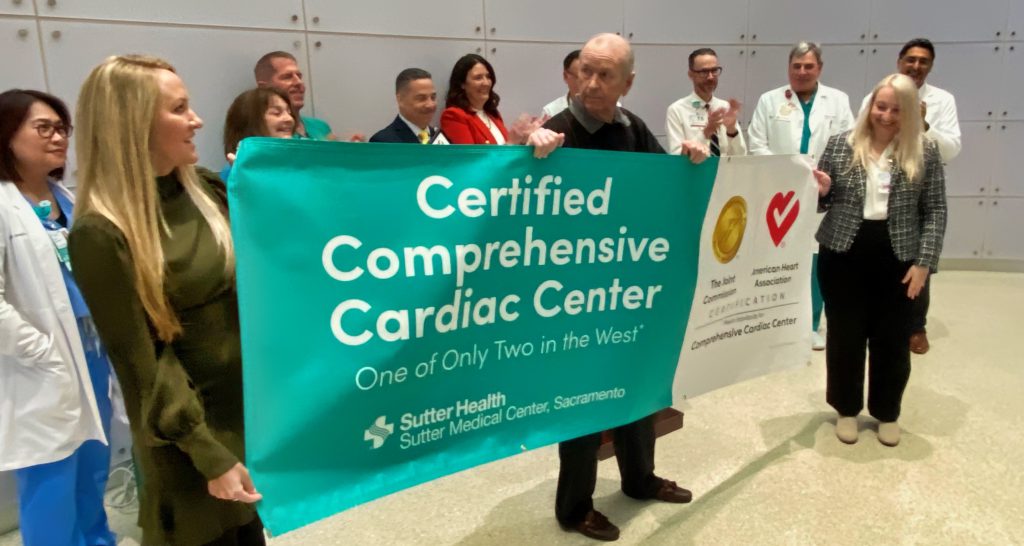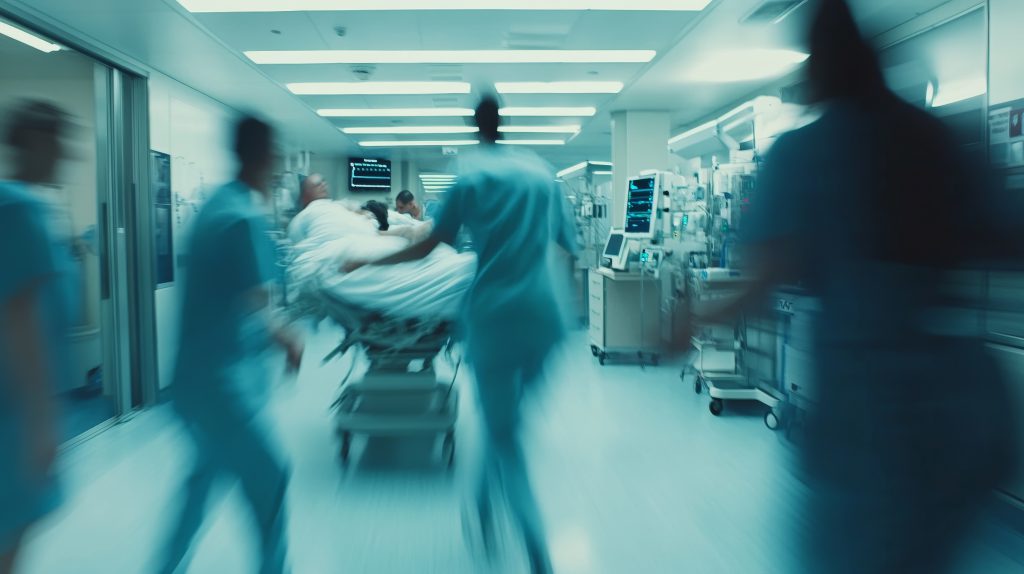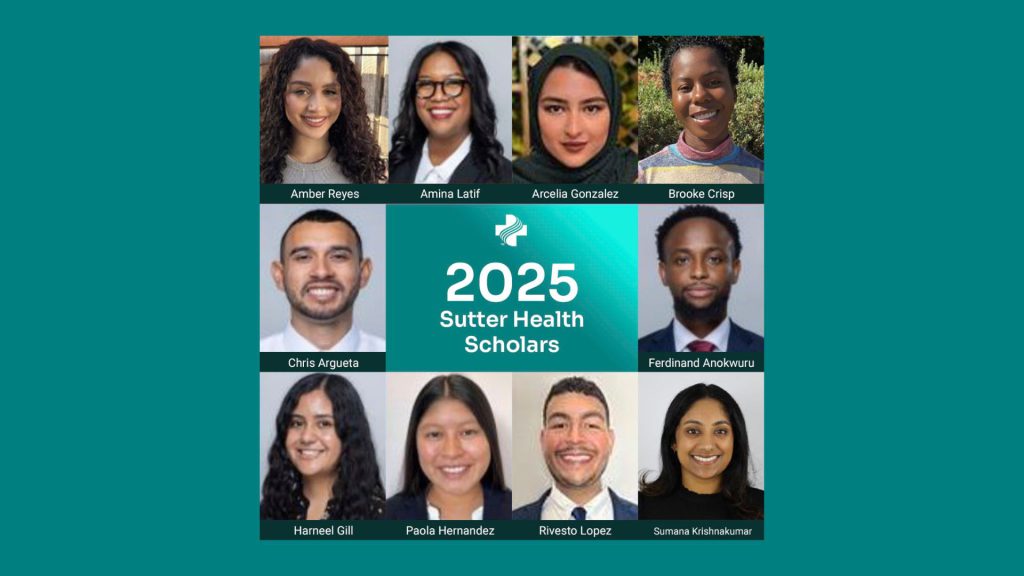By Lara Azar, Vitals contributor
This week, 17-year-old Tyson Wasser walks the graduation stage at C.K. McClatchy High School in Sacramento. Picking up that diploma is the next step toward his plans to study business and finance at California State University, Sacramento in the fall. A routine milestone for some, maybe. Not for Tyson.
For him, that short stroll across the stage means everything. It wasn’t that long ago that he wasn’t walking at all.
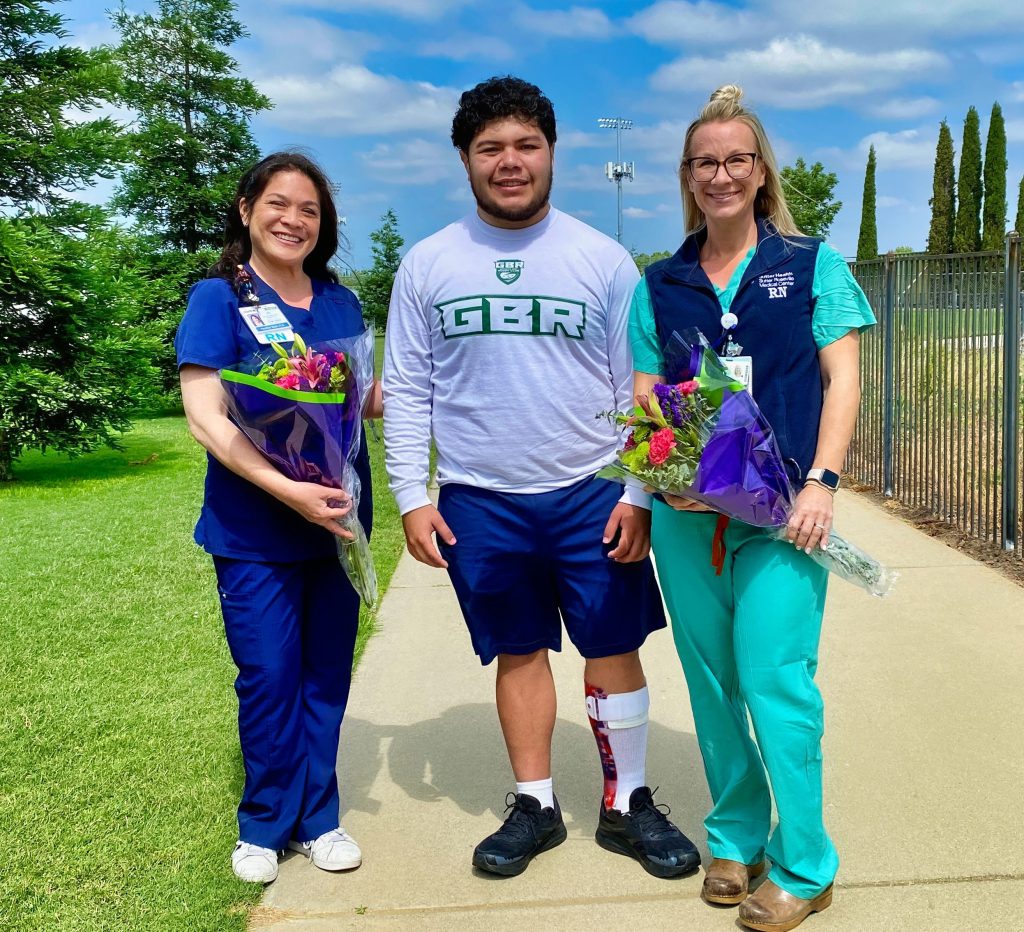
Tyson Wasser thanked the nurses who quickly spotted his stroke: Heather Stark, left, and Alysa Wanger. Wanger, who works in the Sutter Roseville Medical Center post-anesthesia care unit has been trained on how to spot a stroke. “I was a Marine and fought in Iraq and Afghanistan, and Tyson’s stroke is the worst thing I’ve ever seen,” Tyson’s father, Alex Wasser, said.
It’s been less than two months since the high school senior suffered a sudden stroke in the middle of a rugby game, and less than two weeks since he returned home from an extended stay in inpatient rehabilitation. But now, he’s walking unassisted — though his left leg still sports a brace — and one of the very first things he wanted to do when he was discharged from the hospital was thank the two nurses whom his whole family credits with saving his life.
Sutter Roseville’s Alysa Wanger and Kaiser Permanente Roseville’s Heather Stark, both RNs, are rugby moms, volunteer medics and, luckily for Tyson, well-trained in the signs of stroke. Chris Miller, Tyson’s coach on the Granite Bay Rugby Club team, would later write in an update to the team: “ER doctors told us those moms are heroes and, frankly, I agree 1000%.”
But that wasn’t immediately clear at the time. When Tyson began to stagger, players on the opposing team helped him to the sidelines, where the general thought at first was heat exhaustion or possibly even a head injury. Wanger was there to greet him and immediately began asking him what she calls “orientation questions” trying to figure out what had happened.
“It was such an unreal experience because it’s not a first, second, third, fourth or even fifth thing you think is going to happen,” she said. “I’m there looking for lacerations, broken bones, head injuries. Those are the things you’re on the lookout for — you don’t think a 17-year-old is going to have a stroke. … I feel fortunate that I was there to see the signs early.”
Check out this KCRA-NBC-3 story on the reunion of Tyson and the nurses.
When someone cracked a joke and Tyson smiled, that’s when Wanger knew. Facial droop is one of the clearest signs of a stroke, so Wanger immediately raced up and down the sidelines, asking friends and teammates: Has Tyson always had a lopsided smile? The answer was no. She told fellow RN Stark, whose immediate response was: Call it in.
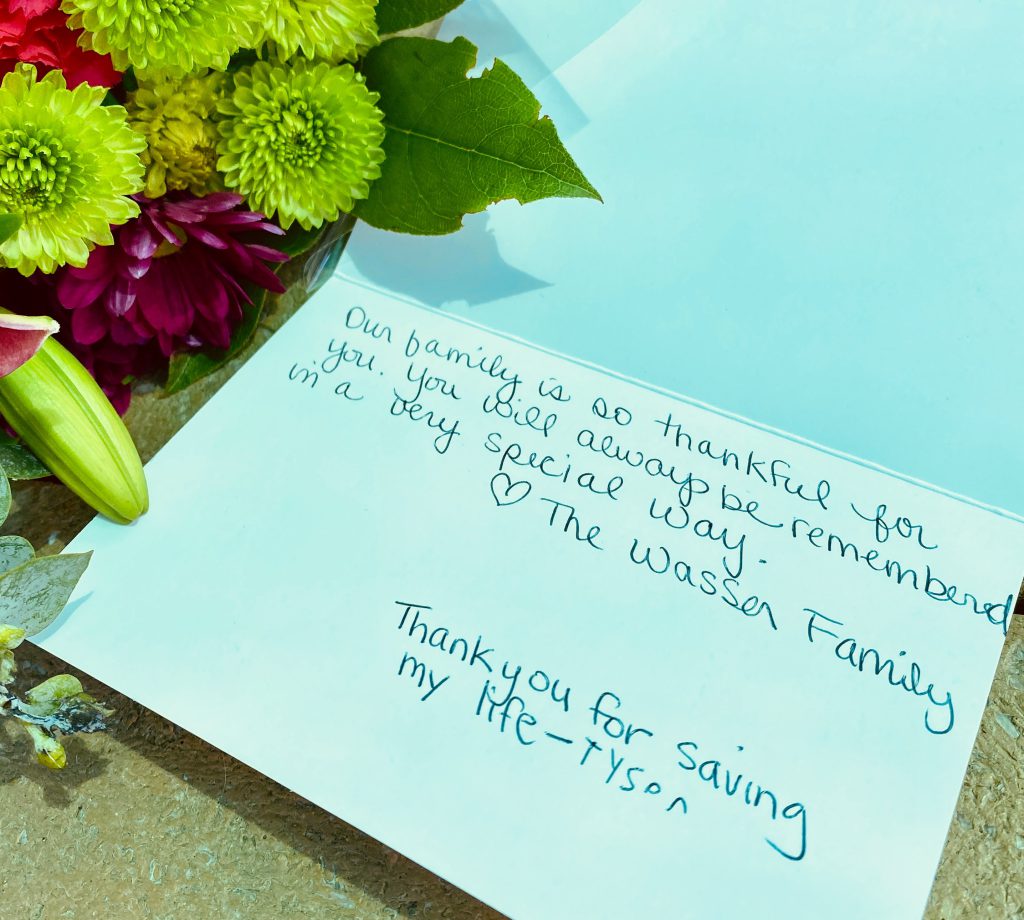
The Wasser family and Tyson wrote cards to thank both nurses. This is the one they wrote to Sutter Roseville’s Alysa Wanger.
Tyson’s dad, Alex Wasser, followed his son’s ambulance to the hospital. Even then, the gravity of the situation wasn’t immediately clear.
“I don’t think I realized how serious it was until he went into emergency surgery — it seemed like something beyond emergency and that’s when it hit me,” Wasser said. “It’s probably one of the worst things I’ve ever had to deal with. … I was a Marine and fought in Iraq and Afghanistan, and Tyson’s stroke is the worst thing I’ve ever seen.”
Which makes Tyson’s June reunion back at that Granite Bay rugby field with Wanger and Stark all the more remarkable — not to mention his future plans, which include “hiking a mountain before I play again.”
“It was a really great experience to come and see them and talk to them,” he said. “I didn’t even really know what they looked like because of the stroke—the only time I got to see them was in photos.”
And as for two nurses from two different hospitals being together to help him that day? Tyson said it’s a lot like rugby, when “you form a bond over what you know how to do.”
You, too, can quickly spot a stroke. Just remember the acronym BE FAST. Click here to learn what it stands for and how some hospitals have been certified to provide quick, top care in treating strokes.

